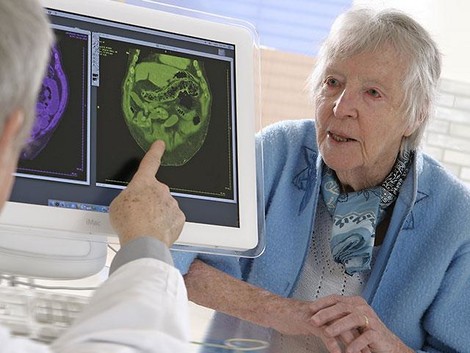Your podcast discovery platform
Curious minds select the most fascinating podcasts from around the world. Discover hand-piqd audio recommendations on your favorite topics.

piqer for: Global finds Health and Sanity Doing Good
Bangalore-based Rashmi Vasudeva's journalism has appeared in many Indian and international publications over the past decade. A features writer with over nine years of experience heading a health and fitness supplement in a mainstream Indian newspaper, her niche areas include health, wellness, fitness, food, nutrition and Indian classical Arts.
Her articles have appeared in various publications including Mint-Wall Street Journal, The Hindu, Deccan Herald (mainstream South Indian newspaper), Smart Life (Health magazine from the Malayala Manorama Group of publications), YourStory (India's media technology platform for entrepreneurs), Avantika (a noir arts and theatre magazine), ZDF (a German public broadcasting company) and others.
In 2006, she was awarded the British Print-Chevening scholarship to pursue a short-term course in new-age journalism at the University of Westminster, U.K. With a double Masters in Globalisation and Media Studies from Aarhus Universitet (Denmark), University of Amsterdam and Swansea University in Wales, U.K., she has also dabbled in academics, travel writing and socio-cultural studies. Mother to a frisky toddler, she hums 'wheels on the bus' while working and keeps a beady eye on the aforementioned toddler's antics.
Gut Health: The New 'Axis Of Good' You Must Know About
This is the new axis—not of evil but of good. Scientists are calling it the gut-liver-brain axis and the evidence is now too strong to ignore.
The latest findings reported at the Alzheimer’s Association International Conference (AAIC) held recently in Chicago indicated that the microbiome in the gut plays a major role in Alzheimer’s pathogenesis. The tests, conducted on more than 1,500 persons, revealed that patients of Alzheimer’s had lower levels of bile acids (produced by the liver) while secondary bile acids that are bacterially produced and are toxic for living cells were in higher concentrations.
This is, in fact, only the latest in the list of diseases that researchers now suspect are significantly related to our gut bacteria. These diseases range from hepatitis, liver irregularities (including cirrhosis), as well as many kinds of auto-immune diseases, to cancer.
An unhealthy balance of gut bacteria causes inflammation in the liver and this begins a silent cycle of aberrations, eventually breaking out as a major disease.
The biggest issue here is how silently this progression occurs. Which is why scientists have found it difficult to establish the gut-liver-brain connection for so long. This is also the main reason why gut-related diseases ‘sneak up’ on unsuspecting individuals.
Secondly, what is being strongly established is the link between our gut health and our emotions. This is because our gut bacteria secrete neurotransmitters such as serotonin and dopamine, the lack (or excess) of which are the primary cause of a lot of anxiety disorders and depression.
Findings such as this one will enable more effective treatments of neurological diseases by helping recognize the imbalance early. Meanwhile, we can all learn to pamper our guts a bit more.
Stay up to date – with a newsletter from your channel on Health and Sanity.
